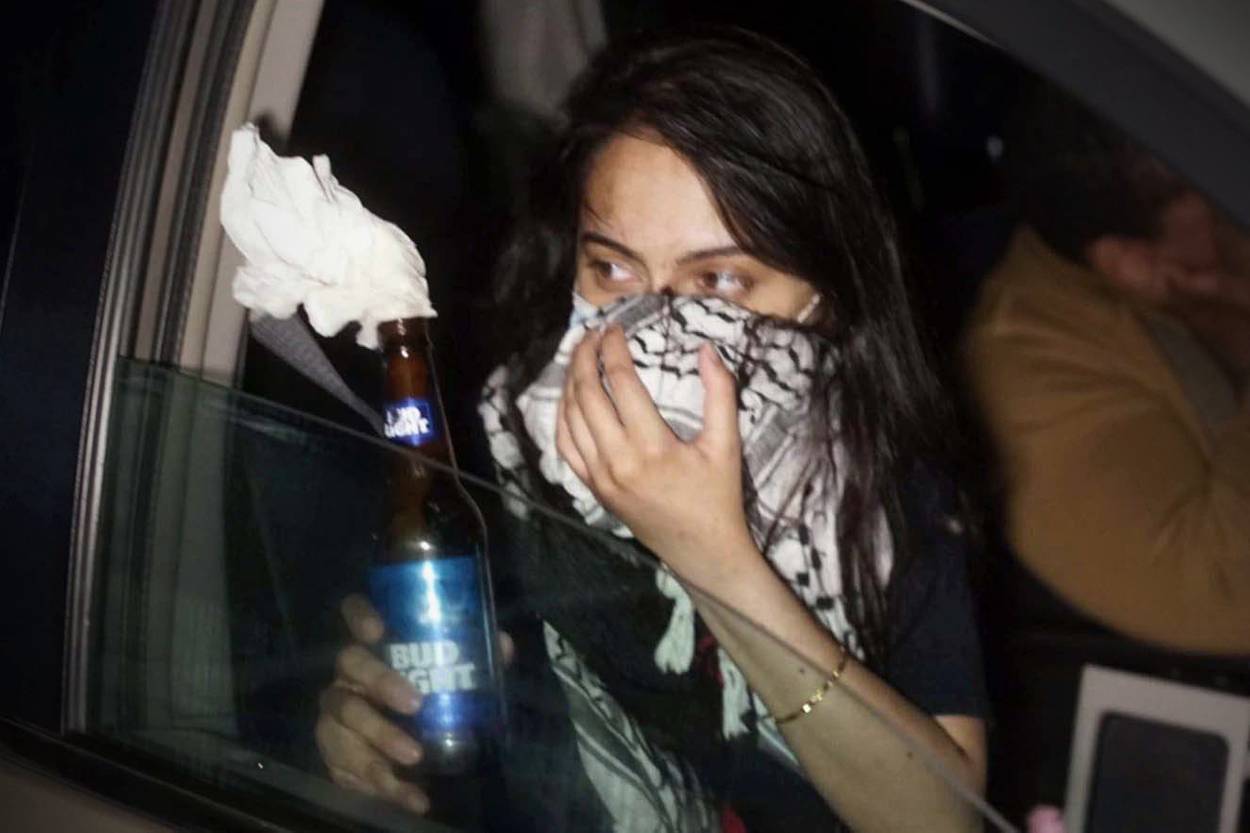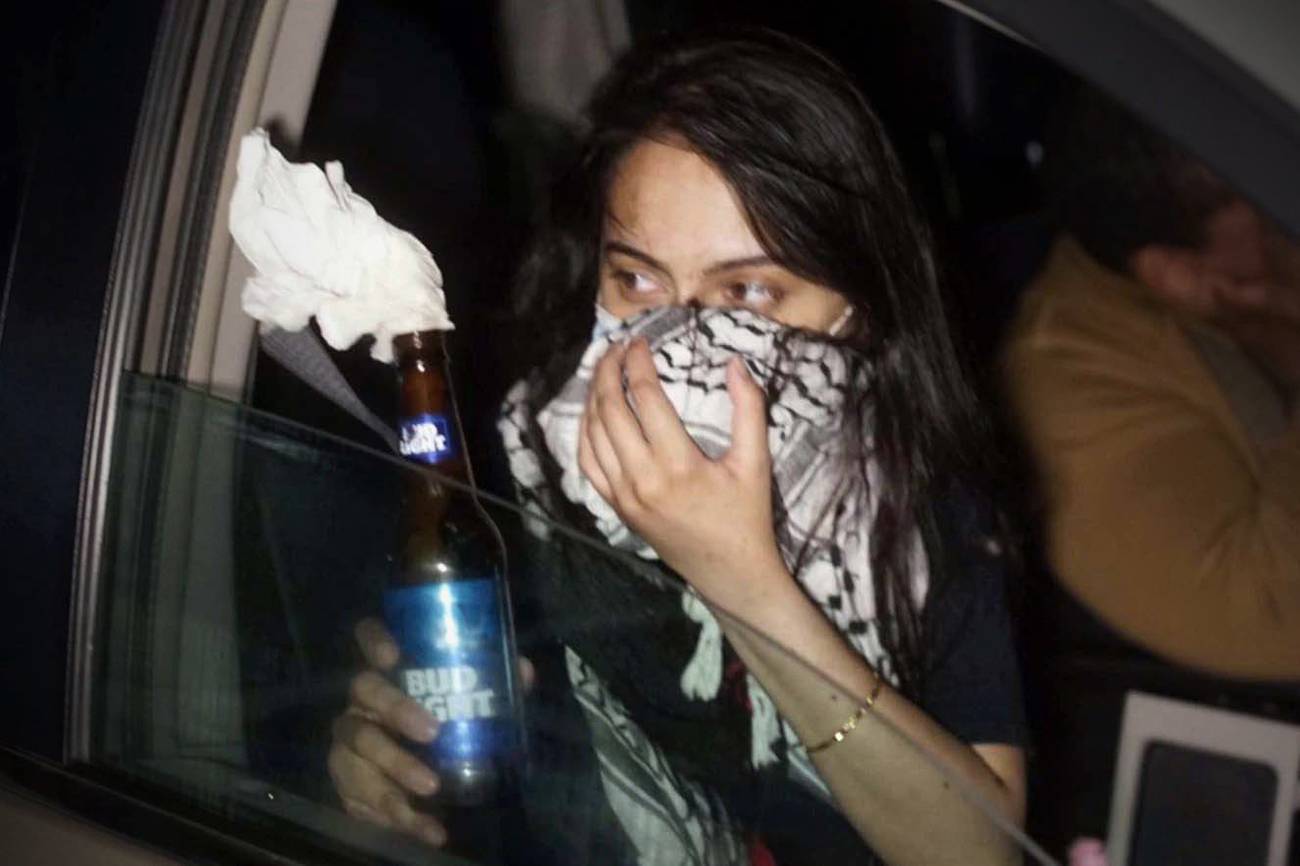Cops and Riots
‘When the voices of citizens are muffled they use their bodies and go into the streets’




The recent arrest of two Brooklyn lawyers—Colinford Mattis, a 32-year-old corporate attorney, and Urooj Rahman, a 31-year-old human rights lawyer—says a lot about justice and injustice in America today. Both Mattis, who is male, and Rahman, who is female, were charged with firebombing a police vehicle. They were granted bail by U.S. Magistrate Judge Steven Gold who said, “One night of behavior is not a basis on which to reject somebody’s ability to make rational decisions.”
Cops around the country often argue that they arrest people who commit crimes only to see judges let them walk. That seems to be the case here. When lawyers leave their cubicles, go into the streets and hurl Molotov cocktails you know something unusual is going on. Indeed, these are extraordinary times that have been building for at least a decade. Citizens are rightly enraged about police brutality and police lawlessness. Some of them are protesting peacefully. Others destroy property.
I don’t condone the use of Molotov cocktails in the United States today. I don’t think it helps the cause of civil rights and civil liberties. But I can understand the anger that citizens like Mattis and Rahman feel. They might also have felt frustration. As lawyers, they surely saw what really goes on in courtrooms. They surely knew that cops who kill black men rarely go to jail and are rarely punished for what they do. Perhaps the two young lawyers were playing at revolution. They might have been desperate. Throwing Molotov cocktails seems like an act of desperation, though not always. French citizens hurled Molotov cocktails at German soldiers during the liberation of Paris. I would say that that was a form of righteous rebellion against fascism.
In December 1969, after law enforcement officials in Chicago shot and killed two Black Panthers, Fred Hampton and Mark Clark, I went into the streets of New York along with thousands of others to protest. I “trashed” (broke) six windows at Saks Fifth Avenue. I was arrested, taken to jail and charged with attempted murder of two police officers. I was also beaten up. At the time I called it “torture” in a piece I wrote for The Village Voice. It was certainly physical and mental abuse that went on for hours in several precincts. My head was cracked open and I needed about 50 stitches. Four fingers were broken. They are still crooked. My whole body was black and blue and swollen. My lawlessness ought not to have condoned the lawlessness by the cops. My lawyer, Paul Chevigny of the ACLU, said it was “the worst case of police brutality” he had ever seen in New York. I was a college professor. When I arrived in court the morning after the beating the judge granted bail and I walked out of the courthouse. I charged the cops with brutality and dropped the charges when the cops dropped the charge of attempted murder. So much for justice.
I don’t see a clear way ahead or an end to police brutality and lawlessness. As long as there are cops there will be cop violence and cop abuse.
As a reporter in California over the last several decades who follows the law as it relates to marijuana, I know that cops often lie on the witness stand. They might be lying about Mattis and Rahman, though it seems that surveillance cameras captured Rahman hurling a cocktail into a police vehicle and setting fire to it, near a police station. Perhaps so, though cameras don’t always tell the truth, the whole truth and nothing but the truth. Prosecutors say that the cops also found a lighter, a Bud Light beer bottle filled with toilet paper and a gasoline tank in the back of their minivan. Sounds incriminating. Still, the judge ordered their release after posting $250,000 bail each. If the cops planted the “evidence” it would not be the first time.
In the late 1960s , members of Weatherman, the SDS splinter group, would have said that the two young lawyers used their “white skin privilege.” Mattis and Rahman had the wherewithal that almost all black and brown men and women don’t have. Prosecutors noted that, “Instead of using their privileged positions to change society lawfully, they used a Molotov cocktail and sought to incite others to adopt their violent ways.”
Mattis graduated from Princeton, Rahman from NYU.
Changing society lawfully often doesn’t happen until and unless some people take extraordinary actions, including breaking the laws. As Dr. Martin Luther King Jr. noted in the 1960s, “a riot is the language of the unheard.” His statement seems to be as true for the riots now as it was for the riots then. When the voices of citizens are muffled they use their bodies and go into the streets.
As a novelist and the author of three noir murder mysteries, I can see the situation that unfolded in Brooklyn in the streets and later in the courthouse from the point of view of all the individuals involved. From a writer’s perspective, they are all equally valid. As a longtime observer of lefty groups, radicals, and street protests I don’t see a clear way ahead or an end to police brutality and lawlessness. As long as there are cops there will be cop violence and cop abuse. It’s in the nature of the beast. So, too, there will be judges who allow men and women to post bail and walk away, though the evidence against them seems powerful indeed. Prosecutors want convictions. They will want convictions in the case of Mattis and Rahman. So it is understandable that they would say, “Instead of using their privileged positions to change society lawfully, they used a Molotov cocktail and sought to incite others to adopt their violent ways.” That makes them sound compassionate.
I wonder if and when and how the prosecutors used their privileged positions to change society lawfully. My guess is that they were cogs in a machine that I have come to think of as the criminal injustice system, but perhaps they will change. What is the humane thing to do? Sending Mattis and Rahman to federal prison for five to 20 doesn’t seem likely given their privileged positions in our society. Once the dust settles, which might not be for a while, prosecutors will probably not be as gung-ho to send them to prison as they are today. Dozens of young, poor, black men and women will come into the courtrooms, be found guilty and be locked up. Reform of the police and the courts seems as far off now as it did in 1969, 1970, and 1971, when the criminality of the war in Vietnam, and the murder of Black Panthers sent me and hundreds of thousands of men and women like me into the streets to commit civil disobedience and to riot, a tactic as old as the Roman Empire. To some that might sound cynical. To me it sounds realistic.
Jonah Raskin, professor emeritus at Sonoma State University, is the author of 14 books, including biographies of Jack London, Allen Ginsberg, and Abbie Hoffman. His new book of poetry is The Thief of Yellow Roses (Regent Press).